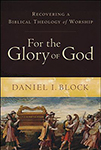Two Mountains, Many Tables, and Supping with God

October 10, 2014
 How can we approach our holy God? Isn’t this the age-old question? From the beginning of Scripture we have an amazing event recorded, even more remarkable than the creation itself: God reveals himself to man and condescends to have a relationship with him. The mere fact that we even have the Scriptures testifies to one of my favorite titles for a book, He Is There and He Is Not Silent (Francis Schaeffer). God communicates with his people. That is profound.
How can we approach our holy God? Isn’t this the age-old question? From the beginning of Scripture we have an amazing event recorded, even more remarkable than the creation itself: God reveals himself to man and condescends to have a relationship with him. The mere fact that we even have the Scriptures testifies to one of my favorite titles for a book, He Is There and He Is Not Silent (Francis Schaeffer). God communicates with his people. That is profound.Before the fall God gave Adam and Eve covenantal stipulations. They were given a mandate and a restriction. And we know that after their fall, all mankind has been separated from God. How can sinful man approach our holy God? This is one of the themes that runs through Daniel Block’s wonderful book, For the Glory of God: Recovering a Biblical Theology for Worship.
Block spends the first chapter defining true worship and opens every following chapter with this definition:
True worship involves reverential human acts of submission and homage before the divine Sovereign in response to his gracious revelation of himself and in accord with his will.
He also spends a significant portion of the book teaching from the Old Testament about how God invites worship (35). “But what is most remarkable is that the God of Israel introduces himself by name, YHWH (Exod. 3:15)” (36). Block goes into great detail about the significance of this name, particularly how it “highlight[s] the personal nature of covenant relationship and inviting his people to address him not merely as a heavenly official, but as their personal God” (38). This caused me to pause and think about how amazing it is that God has graciously revealed himself to us and invites us to worship him. He is worthy of worship, and our acknowledgement of that and ability to do so is our ultimate good.
And while there is much to commend about this book, I wanted to reflect on a “remarkable event” that Block points out in discussing Old Testament texts on worship.
The event climaxes in [Exodus] 24, when Moses, Aaron, Nadab, Abihu, and seventy representatives of the people celebrated the new relationship with a banquet in the presence of God (24:9-11). What a moment that was! Eating in the presence of God, yet he did not stretch out his hand against them. This narrative provides a remarkable picture of the God who would first claim Israel’s exclusive worship, and who now claims ours. (42)
We are often comfortable with discussing how Christ invited sinners to the table in the New Testament. But these were a great number of men invited to eat in the presence of God. How intimate! And Nadab and Abihu? Well, clearly God knew what was about to occur with their false worship (see Lev. 10:1). But they are invited by name. What a privilege! And what did they eat?
It made me think of how much greater their guilt was for their sinful approach to worship with a strange fire after dining in God’s presence.
It also reminded me of a reflection I had from reading Arthur Just’s Jr.’s great book, The Ongoing Feast:
Right now, Christ’s table is inclusive. The invitation goes out to all sinners, misfits, and dejected. What does this imply concerning our attitude toward those we sup with? Just as in biblical times, table fellowship now insinuates “peace, trust,… (and) sharing one’s life” (133). Christ used table fellowship as one of his major means of teaching. He communicated his death, resurrection, and the new age to come.
And on that great day when our Lord returns, we look forward to the best feast of all. This is the table that we should aspire to be seated. And this table is exclusive. It is only for those who have trusted in Jesus Christ for their righteousness. He has paid the highest cost for this supper, his own blood, all to invite us to the table. Until then, Christians are called to the table fellowship of the Lord’s Supper, where ordinary bread and wine become a means of grace to convey the benefits of his death and resurrection. It is an eschatological meal amongst fellow redeemed sinners and confessors of Christ. The future breaks into the present, the age to come breaks in to these last days. God’s promises of the reality of the new creation are ratified in this meal.
Maybe you’ve been longing to be invited to some other meal, some other exclusive table. Let me encourage you that the King is summoning a people to his table. Just as when he was walking this earth, it may appear to the world that we are being invited by a rejected Savior to a table full of outcasts. It certainly looks odd that we now feast on our Savior’s body and blood. But because of his body and blood, there will come a day when we are invited to the great feast, in which Christ is the host. “Blessed are those who are called to the marriage supper of the Lamb!” (Rev. 19:9).
The writer to the Hebrews reminds us that like the Israelites, we have also been invited to a mountain (12:18-27).
Therefore let us be grateful for receiving a kingdom that cannot be shaken, and let us offer to God acceptable worship, with reverence and awe, for our God is a consuming fire. (Heb. 12:28-29)




